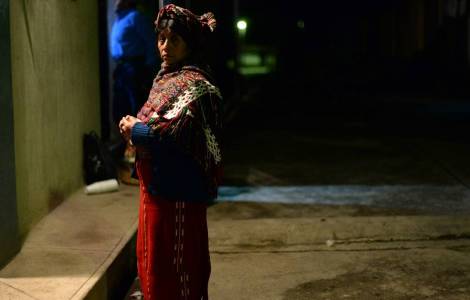
Internet
Santa Cruz del Quiché (Agenzia Fides) – There is an increase in the attacks against human rights defenders, who take position against the creation of highly polluted hydroelectric megaprojects in the indigenous Maya-Ixil region of North Guatemala. In addition to the attacks there are also ongoing conflicts that are carried out within families against women and children, in several municipalities belonging to ixil region, Quiché department, inhabited by indigenous people of the Maya-Ixil ethnic group. The area was the scene of indigenous massacres in the 1980s, in the context of the civil war from 1960 to 1996 (see Fides 8/5/2017).
"The tensions for the re-militarization of the area increase due to the population's refusal to build hydroelectric plants without listening to the local people’s opinion", says a report by Red de Mujeres Ixiles, sent to Fides. "There are also strong pressures from paramilitary groups, shortages in health systems, drinking water and drainage channels, among other basic services in the region, as well as forms of racism, human trafficking".
Between August 2015 and July 2016, the period in which the study was carried out, the Defensoría de la Mujer Ixil and the National Civilian Police (PNC) received 350 and 217 complaints respectively, with an increase of 9% and 14%. 10% of cases reported by Defensoría refer to episodes of sexual violence. Half of the cases, women and girls are victims of men close to them. The study also includes 115 complaints for child abuse received by the Public Ministry (MP) in Nebaj City Hall (Quiché), where an alarming rate of pregnancy among teenagers was also found.
The Red de Mujeres and the Para la Acción Legal en Derechos Humanos Center (CALDH), that collaborated in the study, urged authorities to launch an investigation into human rights violations in order to improve living conditions and to have more peace in the Ixil region, announcing that in 2018 they will present a second study with statistical data. The diocese of Santa Cruz del Quiché, with a population of 824,641, has 581,848 Catholics. (AP) (Agenzia Fides, 10/11/2017)